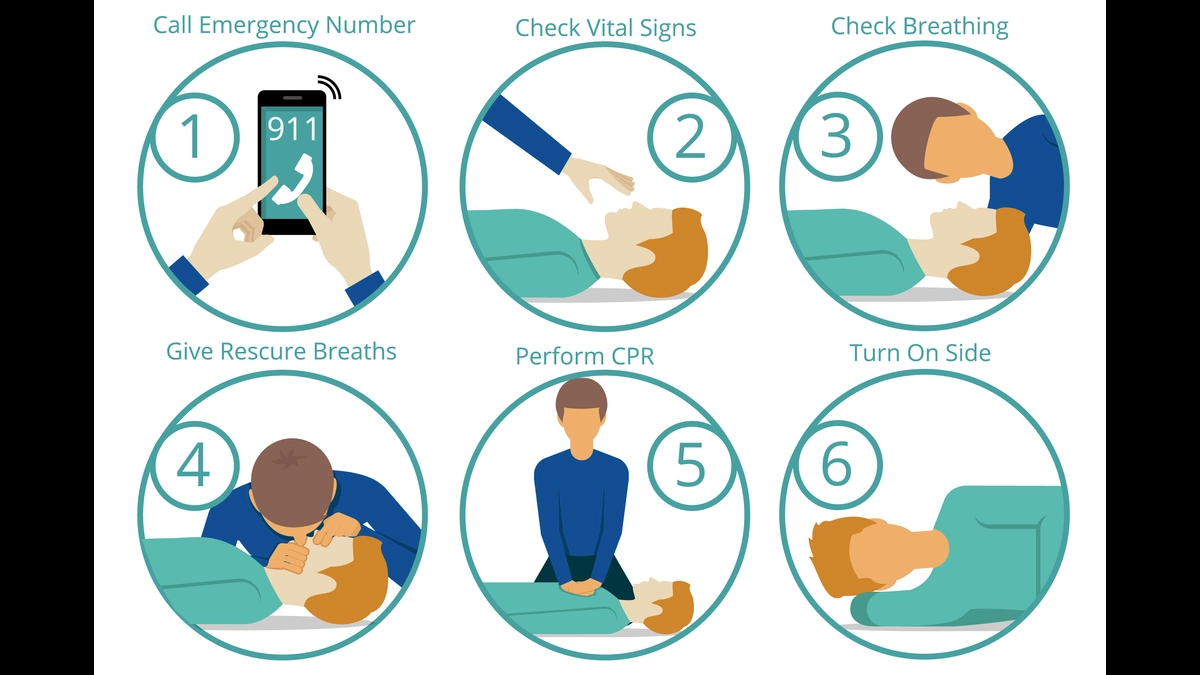Healthcare professionals must maintain their Pediatric Advanced Life Support (PALS) skills. Maintenance of skills ensures the best possible outcomes for severely ill infants and children. PALS recertification is a crucial part of healthcare professionals’ pledge to sustained excellence.
You can access a wide range of recertification courses when exploring PALS recertification options. They are crafted to refresh your knowledge and sharpen your skills. The courses help you to remain updated on the latest developments and breakthroughs in pediatric emergency care. PALS certification is not a one-time achievement. You must seek periodic recertification to maintain your skills and remain updated about the latest guidelines and protocols.
Besides medical professionals, individuals engaged in pediatric care, such as creches, childcare centers, and kindergartens, can also pursue PALS certification or recertification.
This guide delves into the diverse landscape of PALS recertification. It offers insights to healthcare providers seeking to provide the best in pediatric emergency care.
Knowing the PALS recertification process
PALS certification is usually valid for two years. You must renew it to remain relevant and to avoid any lapses. The renewal process involves enrolling in a refresher course and passing the exam. Remain updated about the PALS recertification process to renew your certification on time.
The PALS recertification process involves several essential steps. Let’s go through each one in some detail.
- Review course requirements: Before starting your PALS recertification, review the course requirements established by leading health certifying bodies. These requirements may include a valid Basic Life Support (BLS) certification. Sometimes, you should also have completed a PALS recertification course.
- Choose a recertification course: As a healthcare provider, you have several options when choosing a PALS recertification course. Authorized training centers offer traditional classroom-based courses. These courses provide hands-on instruction led by experienced instructors. Meanwhile, online PALS recertification courses offer flexibility and convenience. They allow healthcare providers to complete the course at their own pace from any location with internet access. Online courses are quickly gaining popularity mainly for being flexible and convenient.
- Complete coursework: Be it an in-person course or an online program, you must complete the required coursework. Completion shows you fully understand the principles and techniques of pediatric advanced life support. The coursework can cover these topics:
- Pediatric assessment
- Airway management
- Cardiac arrest management
- Pharmacology
- Teamwork in resuscitation scenarios
- Undergo skills assessment: Once the theoretical part of the course is complete, you must demonstrate your PALS skills practically. The evaluation may involve:
- Performing cardiopulmonary resuscitation (CPR)
- Using automated external defibrillators (AEDs)
- Administering medications
- Managing pediatric airways in simulated emergencies
Traditional classroom-based courses conduct in-person demonstrations for the assessment and use of manikins. Meanwhile, online modules may use virtual simulation platforms.
- Pass the written exam: Healthcare providers must pass a written exam to complete their PALS recertification. The exam assesses their knowledge of PALS principles and protocols. The exam usually comprises multiple-choice questions, case studies, and scenario-based assessments. The questions test your critical thinking skills and decision-making abilities during infant and child emergencies.
- Receive recertification: You will receive your PALS recertification after you complete the course, skills assessment, and the written exam. You will remain eligible to provide PALS services for the next two years. Remember to note your recertification date; you will need it two years later for a new recertification.
- Maintain documentation: As a healthcare provider, you must maintain documentation of your PALS recertification. You must also maintain your course completion certificates and skills assessment records. All these may be required to award you credentials, renew your license, or explore new employment opportunities.
Explore PALS recertification options
Most healthcare professionals explore PALS recertification options that are flexible. Course providers also heed this need to help the professionals maintain their skills. They offer various learning styles, schedules, and preferences. This is to help healthcare professionals find what best fits their needs.
Some standard PALS recertification options include:
- Traditional classroom-based courses: These courses are in-person and held at authorized training centers. They involve hands-on instructions from experienced instructors. Interactive discussions and practice sessions using manikins and simulation equipment are also included.
- Blended learning courses: This type combines the online module with in-person skills assessment. The blended option allows healthcare professionals to complete the theoretical part online. They can do so at their own pace. Providers give access to interactive modules, videos, and self-assessment quizzes. Once they finish the theoretical part, learners attend an in-person session to showcase their skill level.
- Online recertification courses: The main benefits of online PALS recertification courses are convenience and flexibility. You can complete the entire recertification process remotely, plan the course at your convenience, and move forward through the course at your speed. You can access interactive modules, video demonstrations, case studies, and quizzes. The provider may assess your skills via simulation software or video submission.
Healthcare professionals who have previously completed PALS certification can also choose refresher courses to remain updated. These courses focus on critical concepts, protocol updates, and skills practice. They ensure that healthcare professionals maintain their proficiency between recertification cycles. Furthermore, some medical facilities also offer in-hospital PALS recertification training. Certified instructors conduct them. These programs may include on-site hands-on skills practice, scenario-based simulations, and competency assessments.
Conclusion
When you explore PALS recertification options, you should choose the type that best fits into your work schedule and other commitments. Does a traditional classroom-based approach suit you, or does the online module work best for you? Again, you have blended courses and in-hospital courses to choose from. Given the strong demand for online classes, this module is the most suitable for most healthcare professionals. However, you can make the best judgment for yourself. That said, you can access high-quality PALS recertification training courses online. These courses will help you maintain your readiness and competence in pediatric advanced life support.




